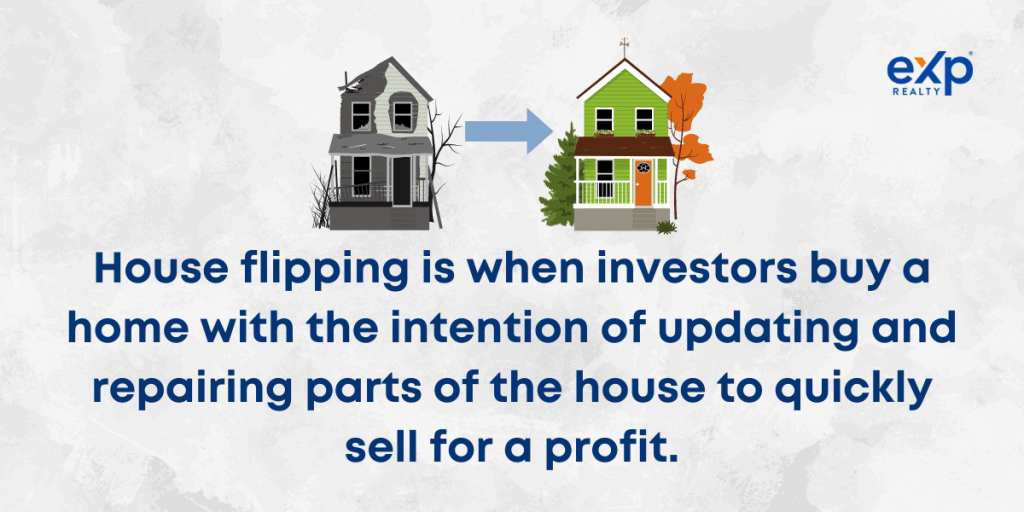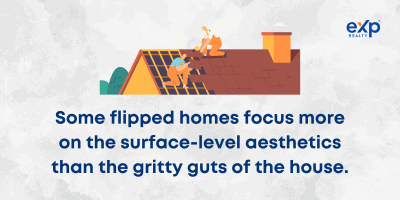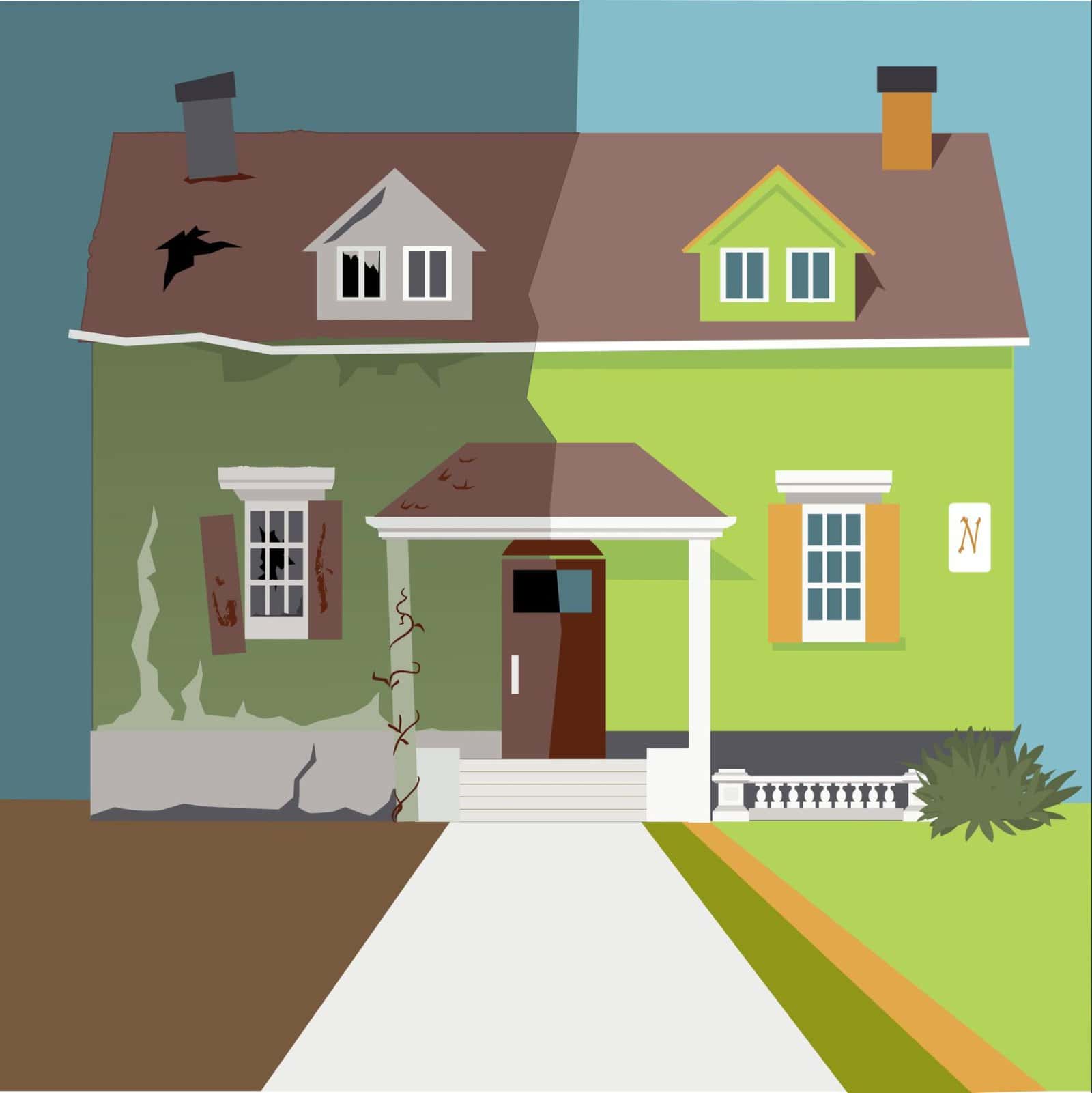House flipping is an often romanticized profession and has an allure to both buyers and sellers. Sellers want to put their craftsmanship to the test and fit out an old home for a profit. Buyers want to own a home that has been worked on with care and updated to the most modern standards. While every city has its share of flipped homes, you’ll find most flipped homes in America in markets like Peoria, AZ Real Estate or Sioux Falls, SD Real Estate.
Purchasing a flipped home can be a great idea, but there are some problems and snares to look out for. With that in mind, here’s everything you need to know about buying a flipped house.
What is House Flipping?

House flipping is when either private or corporate investors buy a home with the intention of updating and repairing parts of the house to quickly sell for a profit. As seen on TV, these flipped homes can seem spectacular. When done correctly, flipping homes bring benefits to both buyers and sellers, and add more value to their local real estate markets. When done incorrectly, flipped homes create a mountain of problems for their buyers.
Where Can You Find Flipped Homes?
Investors looking to flip homes like markets where overall home values are well below the national average. By buying more affordable homes, gives them a better chance of realizing a profit, because they can almost only go higher if they’re bought near the low end of the market price.
How To Spot a Flipped Home?
Verifying whether the house in question is flipped or not might just be the most important thing you need to know before buying a flipped home. One of the tell-tale signs of a flipped house is that it’s unoccupied and unfurnished. Of course, plenty of people own more than one home and sometimes sell their unused houses, so you cannot always count on vacancy as a sign of a recent flip.
A more reliable sign is the time lapse between the seller’s purchase and subsequent listing of the property. If the house was bought as recently as a year before going back up on the market, it very well could be a flipped home.
Finally, if the home in question is owned by a corporation, an LLC, anyone or anything other than your typical private individual, it has probably been flipped. You can also reach out to the neighborhood HOA pertaining to the house and see what information they can tell you, or even ask the neighbors what they know.
The Pros You Need To Know About Buying a Flipped House

Flipped houses are so sought after because so much of the hard work of home repair and renovation has been done for you. You’re almost exclusively going to find flipped homes in areas with already attractive real estate markets. Think about it, an investor wouldn’t sink money into a house if they thought the neighborhood would put off buyers.
Generally, it takes less time to move into an empty, flipped house than a seller-occupied house. One of the keys to making money off flipped homes is speed. The seller wants to profit from the sale as soon as possible, and you don’t have to worry about them dragging their feet to move out of the house if they don’t live in it in the first place.
Because the seller is oftentimes not currently living in the home they’re selling, they’re not worried about finding a new place to live when selling to the buyer. By only having to focus on one house at a time, the seller can move forward faster and with more focus through the selling process.
The Cons You Need To Know About Buying A Flipped House

Contractors and sellers don’t always do their due diligence or good jobs in general. Not all flips are equal in quality or consistency. Some flipped homes receive the bare minimum in terms of repairs, with more focus put on the surface-level aesthetics than the gritty guts of the house where serious problems often arise.
Compliance is a big problem with faultily flipped homes. Just about every municipality has specific rules as to what kind of renovations or additions can be made to its buildings, as well as the proper way to make those renovations or additions. If the contractors failed to comply with city building codes, the flippers selling the house won’t be punished. Instead, the current owners of the home must take the blame and responsibility to get their homes up to code.
Though there are many great home flippers out there who know what they’re doing and do it well, you should be wary of those who will skirt the requirements or put the bare minimum into their work. To keep yourself safe, here are a few things you should know about buying a flipped home.
What To Do Before Buying A Flipped House
Check To See If The House Is In A Good Neighborhood
While the flippers themselves should already have done this before making their investment, it’s a good idea for you to investigate the neighborhood yourself. Check out the schools, check out the traffic, walk around both during the day and at night and see how you feel. In addition, make sure that the listing price of the home in question matches the prices of the homes around it. If there’s a wide discrepancy, something is probably off.
Mortgages Can Be Tricky With Flipped Homes
Many lenders and government programs won’t lend money for homes sold within 90 days of the previous sale. Furthermore, if the home in question was poorly renovated, (i.e. not up to code, faulty wiring, several unfinished rooms) you’ll have a hard time finding a loan. Lenders use your house as collateral. If there are serious issues with that collateral that could affect the value, they won’t take the risk.
Get An Agent Before Getting Serious
You should find a real estate agent when looking to buy any house, but they are even more useful when buying a flipped house. Experienced real estate agents know what to look for in a flipped house. They can see the high value, deep repairs and they can see the hasty, surface-level flourishes that bad flippers pass off as renovations.
Good real estate agents know how to check the title history of the home, and with their local network, they can get in touch with buyers who have dealt with the sellers before, assuming they have a record of flipping houses. With an agent, you can more easily vet the trustworthiness of the sellers and their contractors if they used any.
Get An Inspector
Find an inspector with as many years of experience as possible. You want someone who has “seen it all” and knows what to look for in terms of issues with a home’s wiring, plumbing, HVAC system, roof, and foundation. It’ll cost you a few hundred dollars, but it could save you tens of thousands in repairs in the case that the flippers didn’t do a good job.
Pro Tip: Look Under The Surface
Both literally and figuratively you need to peer below the skin of the home to make sure you’re not running into major problems once the title is put in your hands. Flippers might put a lot of money into renovating areas like the kitchen and the bathrooms while skimming on other parts of the house. Some common areas that get ignored include windows (are they single-paned, double-paned?), doors, handles and light switches, as well as the innards of the plumbing.
Vet The Contractors
Figure out who exactly did the ‘flipping’ when buying a flipped house. Usually, the flippers themselves will be selling the house, but sometimes there’s a degree of separation. Once you’ve identified the renovators, vet their reputations and get in touch with other buyers who have bought houses renovated by them.
If applicable to your local jurisdiction, you want to make sure the contractors have the proper licenses and permits to be doing the work they’re doing. You’re the one who will pay the consequences if the contractors shirked their responsibility to do their job legally and ethically.
Review Disclosure Reports and Permits
Collect all the information you can about what work was done on the house and what permits were issued to the contractors. Most of the time you can find these permits on your city’s website or appropriate department. Your agent can help you find these documents as well. As for the disclosure reports, those will entail all known issues with the home. Ideally, there should be nothing major wrong with a home that was just flipped, so double-check the report with your inspection to make sure you’re not buying a home with undisclosed problems.
Everything You Need To Know About Buying A Flipped House
Don’t be put off from buying a flipped house. Most of the time they are great homes brimming with value from the time and care given to their renovation by professionals. Just be aware of what to look for, make sure the contractors did their job and their homework too, and you’ll be all set to buy a flipped house.





